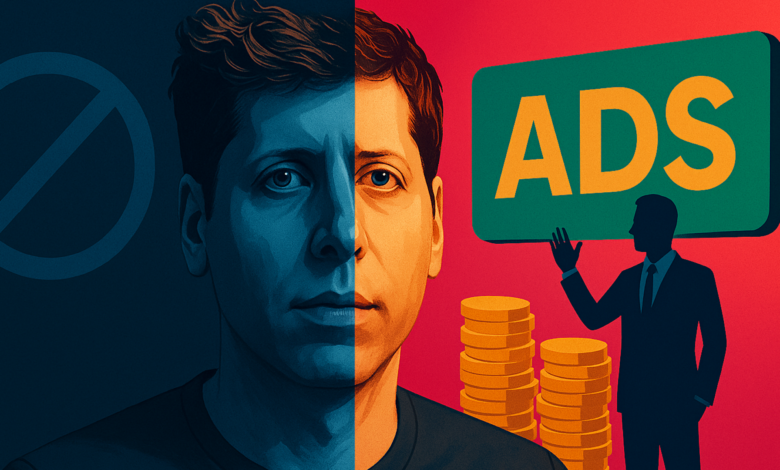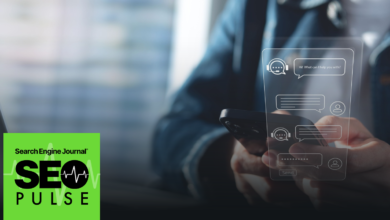Sam Altman’s ChatGPT Ad Shift: From Hating Ads to Embracing Them

▼ Summary
– Sam Altman previously called advertising a “last resort” for ChatGPT and expressed dislike for ads as an aesthetic choice.
– His perspective shifted after experiencing Instagram ads, which he found valuable for discovering and purchasing products.
– Altman now believes there could be a beneficial ad model for ChatGPT that enhances user experience without compromising integrity.
– OpenAI is planning to monetize free users through ads, targeting $1 billion in revenue from this initiative by 2026.
– A potential ChatGPT ad product would provide advertisers access to its 800 million users, marking a significant new advertising channel.
Sam Altman, the CEO of OpenAI, has undergone a notable shift in his perspective on digital advertising, moving from vocal skepticism to cautious optimism. His evolving stance suggests that a thoughtfully designed advertising model could potentially enhance the user experience on platforms like ChatGPT, rather than detract from it. This change in viewpoint marks a significant departure from his earlier, more critical comments.
During a recent interview, Altman pointed to his personal experience with Instagram as a turning point. He explained that he actively enjoys the ads on that platform, finding they introduce him to products he wouldn’t have discovered otherwise and have even led to purchases. He expressed respect for Meta’s ability to integrate advertising in a way that feels valuable. For other internet services, however, he had traditionally viewed ads as an unavoidable burden. He now believes it’s possible for OpenAI to develop an ad product that benefits both the user and the company’s relationship with its audience, though he admits the specific model has not yet been defined.
This new outlook stands in stark contrast to his previous statements. Earlier this year, Altman dismissed the advertising industry as fleeting and declared a personal aversion to ads on an aesthetic level. He emphasized his preference for a paid ChatGPT model, where users could trust that the information provided was free from advertiser influence. He even described the combination of artificial intelligence and advertising as “uniquely unsettling.” In a March discussion, he again rejected the idea of traditional ads, instead floating a concept where OpenAI could earn a small affiliate fee if a user made a purchase through a feature like Deep Research, without ever accepting payment to alter search results. He remained open to a “tasteful” approach but reiterated his general dislike for conventional advertising.
A noticeable softening in his position began to emerge by the middle of 2025. On OpenAI’s official podcast, Altman clarified that while the company had not launched an ad product, he was not completely opposed to the idea. He reiterated his positive experience with Instagram ads and acknowledged that Google Search, despite its perceived degradation, was once an amazing ad-driven product. He stated that it is clearly possible to be a good company that relies on advertising, but that such a path comes with its own set of challenges that require careful navigation.
Following the launch of ChatGPT Pulse, he told reporters that OpenAI would explore advertising only if it could discover innovative and genuinely helpful implementations for users. He stressed that any foray into this space would be approached with significant caution.
The motivation behind this strategic pivot appears to be driven by business objectives. OpenAI is actively building a team to transform ChatGPT into a platform capable of hosting advertisements. Internal documents indicate the company is projecting substantial new revenue, targeting up to a billion dollars from monetizing its free user base through ads by 2026.
This potential development is critically important for the digital marketing world. The introduction of an advertising product on ChatGPT would open up a massive new paid media channel, offering brands direct access to its hundreds of millions of active users. Altman’s journey from seeing ads as a necessary evil to considering them a potential feature illustrates a fundamental reassessment. The industry will be watching closely to see if OpenAI can successfully redefine advertising for the new era of artificial intelligence.
(Source: Search Engine Land)





